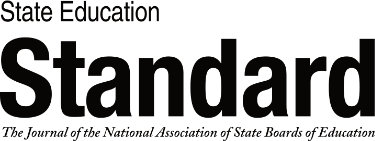Illinois’s Bold Bid to Expand Preschool Access to All

I recently visited a preschool classroom in central Illinois, one that pulsated with the energy of eager learners. Adorning the walls of East Side Preschool in Effingham, Illinois, are colorful posters displaying letters, numbers, and imaginative artwork. In one corner, children enthralled by a teacher’s animated storytelling gather on a cozy rug, while in another, collaborative play unfolds as small groups construct block towers or explore sensory bins.
Not just at East Side but in early learning centers throughout Illinois, dedicated educators guide a symphony of activity, fostering curiosity, creativity, and a profound love for learning through purposeful play and exploration. What children learn in preschool prepares them to excel throughout their academic life. They develop perseverance and resiliency. They learn to cooperate, solve problems, cope with emotions, and negotiate.
These skills are critical to children’s ability to overcome future challenges. And thanks to the visionary Smart Start Illinois initiative, we are reaching more young people than ever before.
Smart Start Illinois is a multiyear plan to provide every child with access to preschool, increase funding to child care providers to raise wages and quality, and reach more vulnerable families with early support. When Illinois Governor JB Pritzker said he wanted to make Illinois the best state in the nation for families raising young children, he also ensured that the state would dedicate resources to bring this vision to fruition. At its core lies a recognition that high-quality early childhood care and education underpin economically secure, thriving families and communities.
At its core lies a recognition that high-quality early childhood care and education underpin economically secure, thriving families and communities.
Launched with a $300 million investment in the fiscal year 2024 state budget, Smart Start Illinois has already yielded results. The Illinois State Board of Education administers the Early Childhood Block Grant, which has three components: half-day preschool, full-day preschool, and intervention services for parents and children prenatal to age 3. The inaugural year of Smart Start allocated $75 million to the Early Childhood Block Grant and resulted in the creation of additional preschool capacity to serve over 5,800 children. Additional investments have stabilized child care providers, raised wages for child care workers, and expanded early intervention services.
The timing of this initiative is apropos, as the child care industry grapples with a national shortage of early care and education providers and teachers, compounded by the challenges of the pandemic. Despite Illinois ranking eighth in the nation for preschool enrollment, there are still regions with insufficient numbers of publicly funded preschool seats, leaving thousands of families without access. Illinois’s ultimate goal is to create 20,000 new pre-K spots, which will ensure universal access for all 3- and 4-year-olds and completely eliminate the state’s “preschool deserts.”
The importance of early childhood education cannot be overstated. Illinois’s own Nobel Prize–winning economist James Heckman finds there is a 7 to 10 percent per year return on every dollar invested in high-quality early childhood education.[1] Children who participate in high-quality early education programs are more likely to be kindergarten-ready, less likely to require remedial coursework later on, and more likely to graduate high school and pursue higher education and successful careers. By investing in preschool expansion, Illinois aims to bridge the opportunity gap that begins before children even enter kindergarten. With 90 percent of brain development occurring by age 5, these early years lay the groundwork for lifelong learning and success.
By investing in preschool expansion, Illinois aims to bridge the opportunity gap that begins before children even enter kindergarten.
Smart Start Illinois reflects our state’s longstanding commitment to early childhood education and care, born out of meticulous research and stakeholder collaboration. The statewide implementation of an observational kindergarten readiness assessment in fall 2017 provided advocates, lawmakers, and the education community the first-ever statewide snapshot of child development.[2] The data affirmed the existence of stark gaps between low-income students and their non-low-income peers. Children without access to high-quality early learning experiences were starting school already behind.
Governor Pritzker established the Illinois Commission on Equitable Early Childhood Education and Care Funding in December 2019 to shed light on funding disparities and service fragmentation within the state’s early childhood services, and its work highlighted the imperative for a more cohesive, equitable approach. Funding inadequacy contributed to low wages for childcare workers and high costs for families, creating a system where families struggled to afford care and workers were paid below market rates.
Part of the problem was that the state’s early childhood services were spread across three state agencies. The Illinois State Board of Education (ISBE) administered the Early Childhood Block Grant. The Department of Human Services administered programs to subsidize the cost of child care services, home visits, and early intervention services for low-income families. The Department of Children and Family Services licensed day care providers. This fragmentation undermined equity and led to confusion among both parents and providers, who struggled to navigate a complex landscape of information and services.
In October 2023, the governor announced the establishment of a new, unified state agency focused on early childhood. By aligning programs, data, and policies, Illinois aims to streamline governance structures, simplify access, and take one more significant step toward making Illinois the best place in the nation to raise a family.
The transition will take several years to complete. ISBE will maintain general oversight of pre-K within school districts and of early childhood special education, continue to administer the kindergarten readiness assessment, and continue to license early childhood teachers. So while administration of the Early Childhood Block Grant and some other policies will move to the new agency, ISBE will still work closely with the new agency to ensure alignment.
Illinois ranks fifth in the nation for preK-12 education, according to U.S. News & World Report. Getting here has required courageous leadership that takes an honest look at the strengths and liabilities of state systems and takes deliberate, collaborative action. Throughout, Governor Pritzker’s administration has analyzed data and engaged the state’s robust education advocacy community, providers, schools, educators, parents, and lawmakers. When they are united in a common vision, people of diverse perspectives can help identify roadblocks and solutions.
When they are united in a common vision, people of diverse perspectives can help identify roadblocks and solutions.
Challenges remain. Preschool expansion necessitates a trained workforce that can meet the growing demand for early childhood services. Illinois continues to prioritize wage parity for early childhood educators and efforts to widen and strengthen the teacher pipeline.
In March, Illinois launched its application for the FY 2025 Early Childhood Block Grant. After adding 160 preschool seats, Effingham is no longer on the list of preschool deserts, but none of the need of a school district just 20 miles away has been met.
Every child in every ZIP code deserves a strong start. By investing in the well-being and development of our youngest learners, Illinois is laying the foundation for a brighter, more prosperous future for generations to come. The Smart Start Initiative is not merely a program; it is a commitment to building a better tomorrow, one child at a time.
Chris Benson is a member of the Illinois State Board of Education and a past chair of the NASBE Board of Directors.
Notes
[1] James J. Heckman et al., “The Rate of Return to the HighScope Perry Preschool Program,” Journal of Public Economics 94 (2010): 114–28.
[2] Illinois State Board of Education, “Early Childhood KIDS: Data & Reports,” web page.
Also In this Issue
Opportunities and Challenges for Preschool Expansion
By Allison Friedman-Krauss and Steven BarnettAs states adopt a bigger role in preschool, state leaders need to be ready to steer through tough questions of quality, access, funding, and continuous improvement.
Universal Pre-K in Tulsa: A Surprising Success
By William GormleyLongitudinal studies of Tulsa’s universal pre-K program reveal benefits to students that persist as they move through elementary and secondary school and on to college.
An Economic Perspective on Preschool for All
By David M. BlauIs “preschool for all” the best way to extend access to preschool to the children who need it most?
State Strategies for Improving Young Children’s Math Skills
By Deborah StipekEarly math instruction is as important to young learners' futures as literacy. It's time for math to get the same level of attention.
California’s Transitional Kindergarten: Lessons Learned
By Anna Powell, Brandy Jones Lawrence and Wanzi MuruviStates can learn from California's statewide launch of transitional kindergarten, which has impacts on other ECE providers, workforce preparation and compensation, professional development, funding, and program evaluation, as well as implications for system governance.







 i
i
 i
i
 i
i